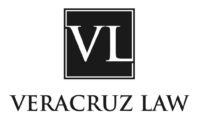
Trusts are legal instruments that help individuals and families manage and protect assets.
Individuals can create a trust agreement that specifies who controls certain property and what happens in the event of incapacity and death. The creator(s) of the trust (called a trustOR or grantOR and settlOR) determine what property the trust controls and the rules for its control. In addition to the trust creator, there two other parties, 1) the managers of the trust and 2) the recipient or beneficiary of the trust. Depending on the situation the creator, manager, and beneficiary can be the same individual. What advantage of trusts are its flexibility and the myriad uses it has to accomplish any number of objectives.
Do you need a living Trust?
Trusts have gained popularity in the United States in the last 50 years as a method to transfer property upon death without requiring beneficiaries to go through probate proceedings. Assets held or titled or owned by the the trust are non probate assets and have their own internal management and control structures and which generally operate outside the realm of the Court system. Court proceedings can often be costly and time-consuming and avoiding probate is the primary reason that individuals and families choose to create trusts. However, transferring assets into a trust is not the only method to avoid probate. There are a number ways to have your assets titled and held as non probate asset such as assets are property owned as joint tenancy (joint bank account, joint tenants in real estate), and assets that have beneficiary designation (life insurance retirement accounts).
Assets that are not titled in a trust or in joint accounts or have specific beneficiary designaitions are considered probate assets. Probate assets are distributed according to the instructions provided for in a validly executed Last Will in Testament, or if no valid Will exists, according to your state’s specific rules of inheritance which are called intestacy laws. While these assets require Court involvement, there are often simplified procedures for administering Probate estates. For example, California allows transfer of certain property via affidavit or other measures and also streamlined methods to confirm a spouse’s share in community property.
Why do you want to avoid Probate?
The probate process has built in guard rails to ensure that your assets are administered according to the instructions of a deceased will, or if no will, according to the rules of intestacy. The process can be slow but does ensure careful oversight from the judicial system. Such oversight may be needed or wanted depending on the situation. The probate process is completely open to the public and certain transparency can be a disadvantage or advantage depending on one’s personal preference. The Probate process can also be expensive especially if Executor and Professional fees are needed.
Trusts and Non Probate based estate planning is efficient, result in privacy and is often a far less expensive process Probate.
Trusts do not save do not save income taxes, nor estate taxes as these strategies can also be implemented in Wills.
Trusts, however, are flexible instruments and are particularly useful even when limited funds are at issue but other goals are needed such as preventing irresponsible beneficiaries from accessing assets outright or preserving a beneficiary’s eligibility for certain government assistance like SSDI. When applicable, these credit shelter trusts and special needs trusts can offer a wide degree of protection.
Please feel free to contact us should you have any questions about avoiding probate and whether you need a trust. We can help put you in the best place to help you and your family understand your estate planning goals and implement a plan to accomplish it.
SUBMIT A QUESTION OR SUBMIT A REQUEST FOR A FREE ONE HOUR TRUST STRATEGY SESSION

